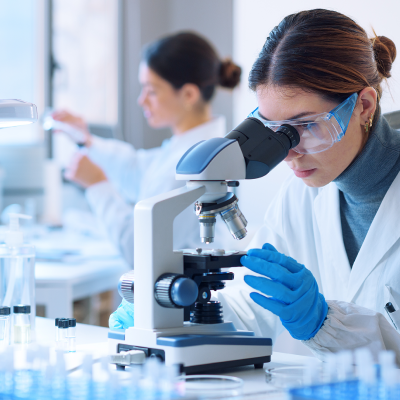Drug development is a complex and lengthy process aimed at creating new, effective, and safe medications for patients. The first and fundamental phase of this journey is preclinical development. During preclinical development, potential drug candidates are examined under laboratory conditions in various biological systems to determine their efficacy and safety. This phase is essential to lay the groundwork for subsequent clinical trials, minimizing the risks associated with human applications. Preclinical development is a critical step that ensures the safety and success of subsequent human studies. Let's explore what happens during this phase!
The primary goal of preclinical development is to establish the drug's safety and efficacy before it is tested on humans. Efficacy assessment involves ensuring that the new therapeutic agent can achieve the desired therapeutic effect in various biological systems. To ensure safety, detailed toxicological analyses are conducted to identify and minimize adverse effects. Additionally, determining pharmacokinetic properties is crucial, as this helps understand how the active ingredient is distributed, absorbed, metabolized, and excreted from the body.
These analyses provide valuable data that allow for the precise determination of the drug's dosage and method of administration. Let's examine the tests conducted during this phase and understand what needs to be known about them!
Pharmacodynamic studies
In Vitro studies
Key elements of preclinical development include in vitro studies, where cell cultures and isolated organs are used to evaluate the effects of potential drugs. Experiments conducted in cell cultures enable detailed exploration of molecular mechanisms. Using isolated organs allows direct study of drug molecules' effects on tissues and organs, thus assessing the substance's efficacy and safety.
In Vivo studies
In vivo studies involve using animal models to test drug formulations under real-world conditions. As part of preclinical development, disease induction is often performed in animals to analyze the drug's effect in a more realistic environment. The use of genetically modified animals is also widespread, allowing more accurate modeling of human diseases and targeted examination of drugs.
Outcomes of pharmacodynamic studies
Pharmacodynamic studies gather important data such as EC50 and ED50 values, which determine the effective and optimal doses of a drug. Analyzing dose-response relationships is also critically important, as it helps understand how a drug's effect changes with varying doses. This information is indispensable during preclinical development, aiding researchers in the safe and effective development of medications.
Pharmacokinetic studies
Pharmacokinetic studies during preclinical development are essential for understanding the drug's mechanism of action. Initially, absorption is examined to reveal how quickly and efficiently the drug enters the bloodstream. This is followed by distribution analysis, which uncovers how the active ingredient is dispersed across different tissues and organs. Finally, the elimination of the drug is studied to determine the rate and manner by which the body expels the active ingredient.
Determining pharmacokinetic factors is critical because they influence the drug's efficacy and safety. Analyzing tissue exposure helps in understanding whether the drug reaches the target cells or tissues at effective concentrations. These preclinical data-based studies are often compared later with human pharmacokinetic studies to ensure the relevance of preclinical models.
Drug safety studies
General toxicological studies
One of the most important parts of preclinical development is conducting drug safety studies. Acute toxicity studies involve short-term dosing to observe immediate toxic effects. In contrast, subacute and chronic toxicity studies cover longer periods, allowing the identification of long-term effects. Moreover, examining mutagenic and carcinogenic effects is essential, as these present long-term health risks.
Reproductive toxicity and teratogenicity studies
Reproductive toxicity and teratogenicity studies also receive significant attention during preclinical development. Various animal species are used to understand the effects of the drug on fetuses and reproductive capabilities. This information is crucial for ensuring safe usage before and during pregnancy.
Specific target organ studies
Studies focusing on specific target organs pay particular attention to cardiovascular, central nervous, and respiratory system effects. This ensures that the drug does not cause severe organ damage and can be used safely.
Key parameters of toxicity tests
Three key parameters are measured during toxicity tests: NOAEL (No Observed Adverse Effect Level), LOAEL (Lowest Observed Adverse Effect Level), and MTD (Maximal Tolerated Dose). These data help determine the safe dose range that minimizes risks.
The significance of preclinical development results
The data collected during preclinical development is crucial before beginning clinical trials. Regulatory authorities enforce strict legal requirements to ensure that a drug is effective and safe for humans. This data helps minimize risks by revealing potential side effects and toxicities in advance.
Comprehensive studies in preclinical development allow researchers to make informed decisions before moving into the clinical phase. This stage is essential for ensuring patient safety and the success of clinical trials. Collecting and analyzing preclinical data is therefore a fundamental part of drug development, laying the groundwork for successful clinical phases.
If a drug candidate performs well in preclinical tests, it can advance to clinical trials. This is where Inthera comes into play, leveraging its agile approach and extensive network to handle drug procurement efficiently. Learn more about our activities and services!
